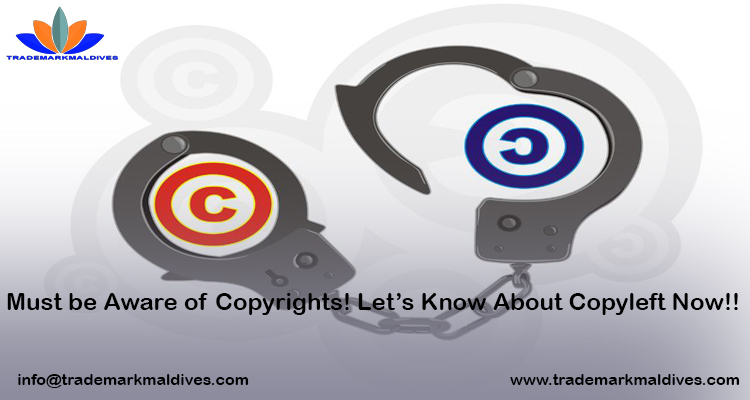In the present Internet age where it has become ever-easier to infringe on Intellectual Property Rights (IPRs), you must have heard about copyright. Most of us know that copyright is an exclusive right that enables the creator to use his original work while preventing others from stealing it.
As a creator, you need to safeguard your unique and creative Intellectual Property (IP) assets. For instance,
- Photographers should copyright their photos,
- Software developers should use appropriate licenses,
- Bloggers should issue DMCA (Digital Millennium Copyright Act) notices.
However, this can be a headache, specifically if you are prolific and your work is famous. That’s why many creators are adopting copyleft. Here’s everything you should know about the copyleft license.
Copyleft
Copyleft is all about a concept by which you can share your work to third parties with some rights such as copying, modifying, etc. Under copyleft license, people are free to use, change, or distribute the work as per their need in exchange for just one condition of preserving the same freedom in the modified versions of the work. It encourages more and better publications. However, copyleft obliges people to distribute the modified work on the base of providing the same or similar copyleft license to others, but it isn’t necessary to make copyleft work free like in the public domain.
3 Key Concepts Related to Copyleft
- Copyleft is About Users Freedom
Despite what the name implies, copyleft is not about abolishing copyright. Instead, it is a subset of the copyright license and functions on an objective to provide freedom to the users.To understand this concept, we need to recall copyright that bestows the owners of the original work with legal rights to dictate how others can or cannot copy, reform, and distribute their works. If someone uses the original work in a way contrary to how its creator allows, the owner is entitled to take legal action, i.e., file Copyright Infringement case. It means the creator with Registered Copyright holds power to restrict what others can do with his work. Although copyleft licenses exist within the legal structure of copyrights, their core notion is that the users should be allowed to copy, modify, and distribute works as they want, with only one crucial clause: all derivative works offer the same freedom of use to other users.
- Copyleft Is Much More Than Just Permission
Copyleft license is not like a permissive license, which grants users the freedom to do anything they want. Copyleft gives freedom but imposes some demands as well. The most noticeable requirement of the copyleft license is that the users must distribute derivative works under licenses that offer rights, which are either the same or similar to the original work.
For example: Suppose a photographer gives you a copyleft photo. As a user, you have the right to modify and share that photo however and to whoever you want, but you would also need to permit anyone else to use your work as he wants. It is known as the ‘share-alike’ clause.
Copyleft is beyond just allowing freedom; it demands freedom.
- Copyleft Isn’t Always Free
As mentioned above, a copyleft has two aspects:
- The freedom for users to copy, modify and distribute derivative works
- The “share-alike” clause to maintain liberty in derivative works.
Nonetheless, there is nothing that makes copyleft work available at no charges. In other words, you may not be able to get a specific copyleft work without paying for it. However, once you do pay for it, you’re free to use it as long as you maintain the same freedoms in the derived work.
Difference between Copyright and Copyleft
Since the concept of copyleft springs out from that of copyright, there can be hardly any comparison between copyright and copyleft. Nevertheless, copyright is restrictive in terms of forbidding third-parties from using rights reserved for the author without his permission whereas copyleft allows third-parties to use the rights liberally but while ensuring that the liberality will not cut off and reaches to every user of the work. In simple words, copyright emphasizes restriction and originality of work of an author, whereas copyleft proffers as well as demands freedom.
Copyright or Copyleft
People often have queries; whether they should go for copyleft, is it right for them, etc. Well, solutions to such questions lie in the author’s will; whether to share the rights with third-parties ready to do the same with others or keep them to himself/ herself. If you go for copyleft licensing, you may sometimes find it a bit harder to make expected money. Besides, even if you succeed in making earnings, they would be significantly less in comparison to that you could have made by traditional copyright rules. Hopefully, this article has given you a better idea about copyright and copyleft that can aid you in making a fair decision. Nevertheless, if any doubt is bothering you, be smart and consult an experienced attorney who can assist you in understanding these legal terms better. For more visit: https://www.trademarkmaldives.com
Don’t forget to follow us on social media:
Facebook – https://www.facebook.com/trademarkmaldives/
Twitter – https://twitter.com/trademarkmaldiv
Linkedin – https://www.linkedin.com/company/trademarkmaldives/
Pinterest – https://in.pinterest.com/trademarkmaldives/




Comments